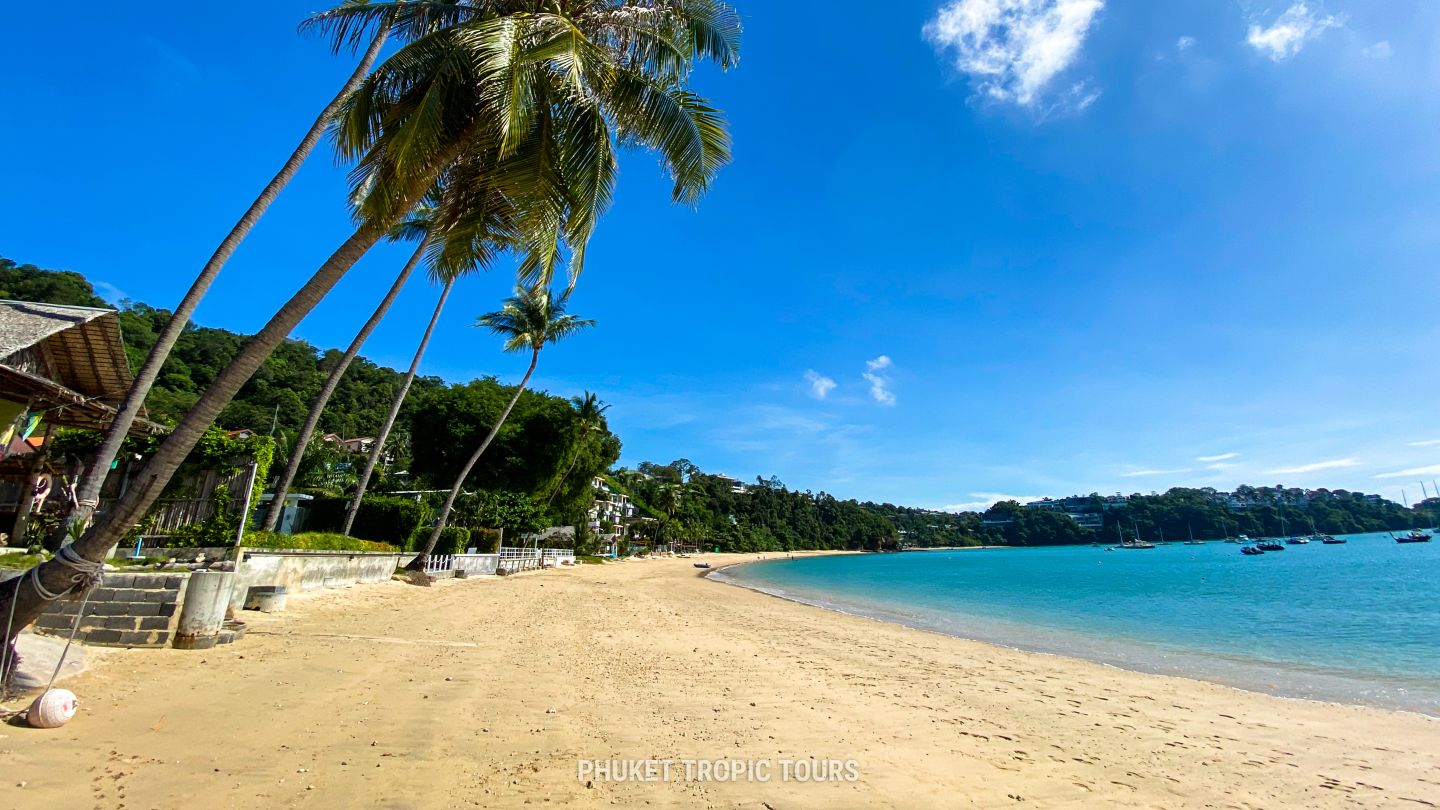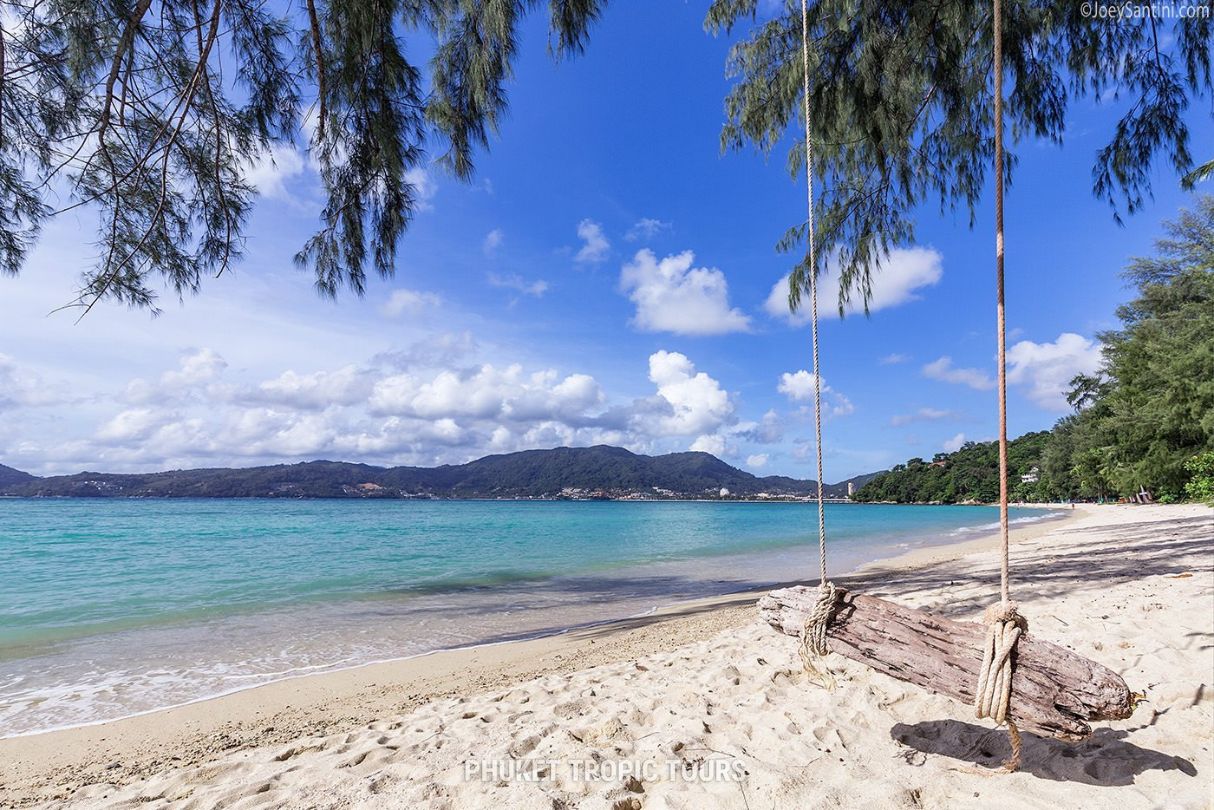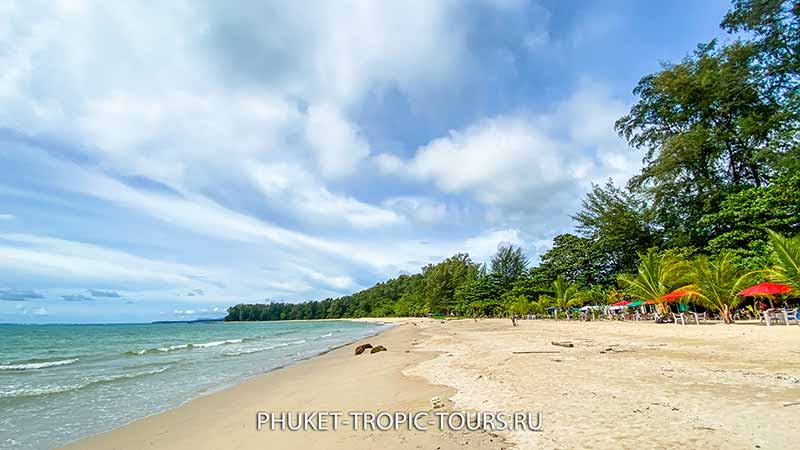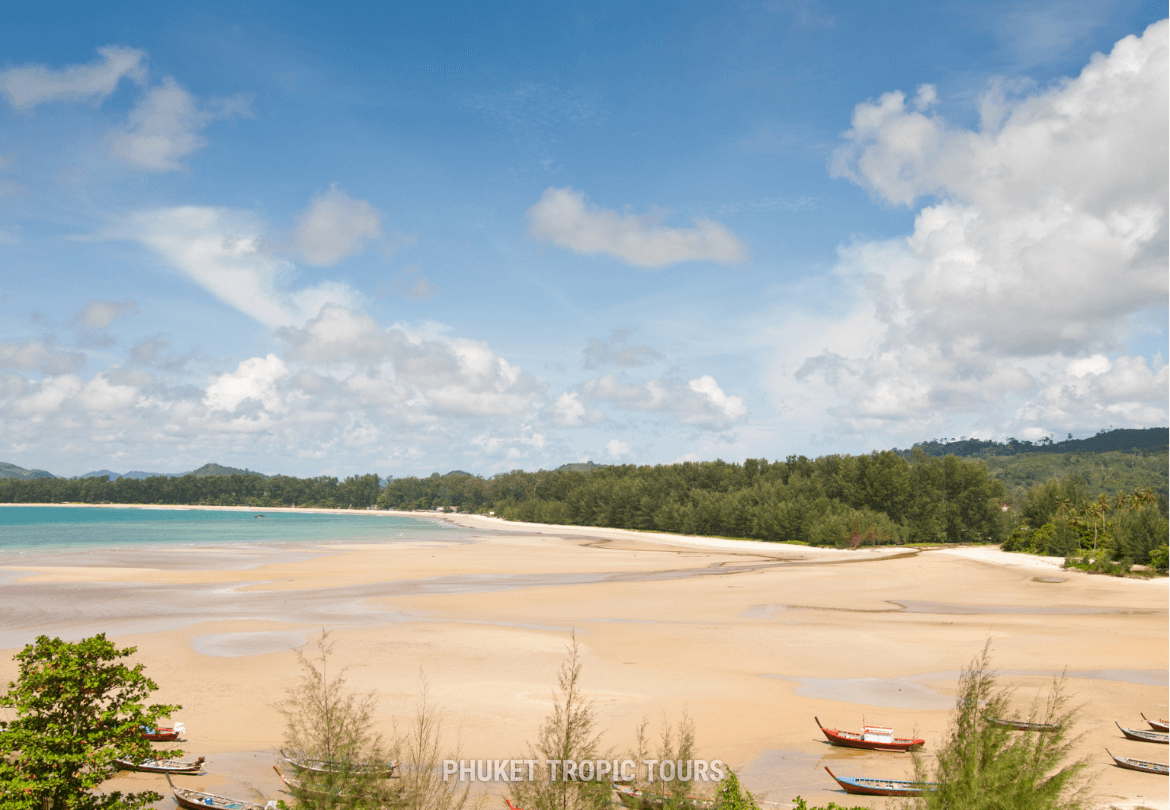Inside the app, you will find a promo code for a discount on your first tour!
Phuket, Thailand, is renowned for its stunning landscapes and inviting beaches. While the sea can be rough during the low season, tourists can always find safe spots on the island’s calm beaches, where there are no waves. These areas remain peaceful year-round, making them perfect for visitors seeking tranquility and safety. In this article, we will explore the best wave-free beaches in Phuket, ideal for those who prefer a serene seaside experience even during unpredictable weather conditions.
Best Wave-Free Beaches in Phuket
In this article, we explore the best wave-free beaches in Phuket, ideal for those who prefer a tranquil seaside retreat, even in unpredictable weather.
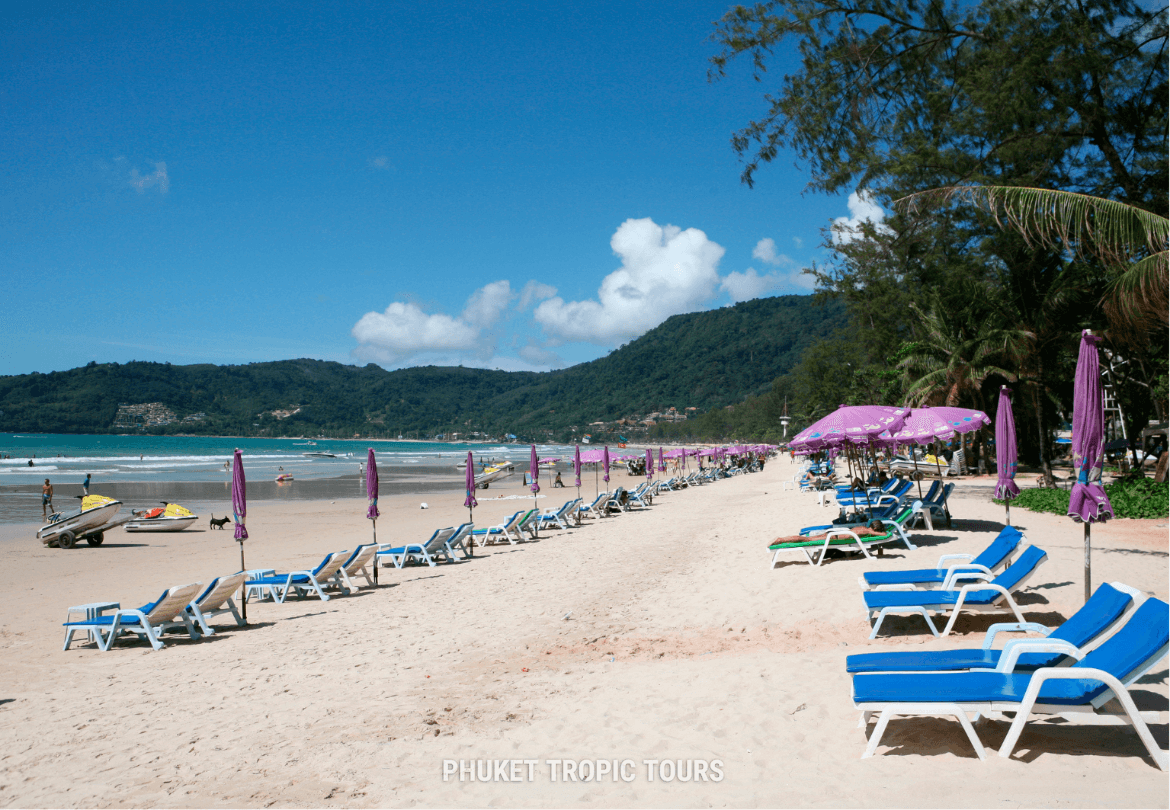
Ao Yon Beach
Located in a quiet bay, Ao Yon Beach (Panwa area) is shielded from large waves, making it perfect for snorkeling and kayaking. It remains relatively untouched by commercial tourism, offering a secluded beach experience.
Tri Trang Beach
Just a few kilometers from Patong, Tri Trang Beach offers a peaceful alternative with its gentle waves and scenic rocky surroundings. It is ideal for those looking to avoid the crowds of the main tourist beaches.
Nai Yang Beach
Nai Yang Beach is known for its calm waters and secluded bay, surrounded by a national park. It is popular among families and kite surfers, offering a balance of natural beauty and active recreation.
Disadvantages of Wave-Free Beaches
While wave-free beaches in Phuket provide tranquility, they are significantly affected by tides. During high tide, rocks may be submerged, making swimming safe, while at low tide, exposed surfaces may pose hazards, making swimming more difficult. Visitors should monitor tide schedules, as water levels change twice daily, impacting activities like swimming, snorkeling, and kayaking. Checking the tide schedule is essential for planning a safe and enjoyable visit.
Conclusion
Understanding that during the low season, particularly from June to September, most Phuket beaches become less safe due to rough seas, it is advisable to plan your trip accordingly. This is especially important when traveling with children. By selecting wave-free beaches and keeping an eye on tide schedules, you can ensure a safer and more enjoyable vacation.



